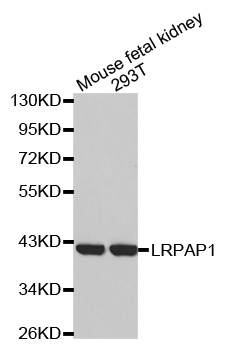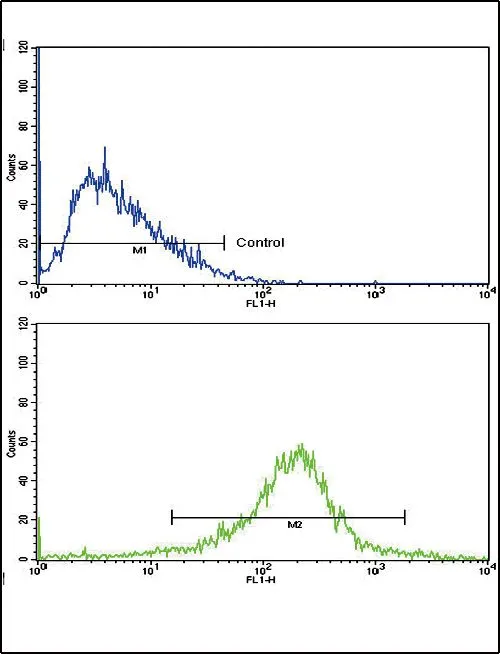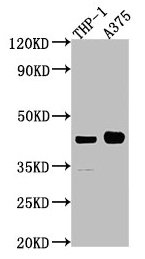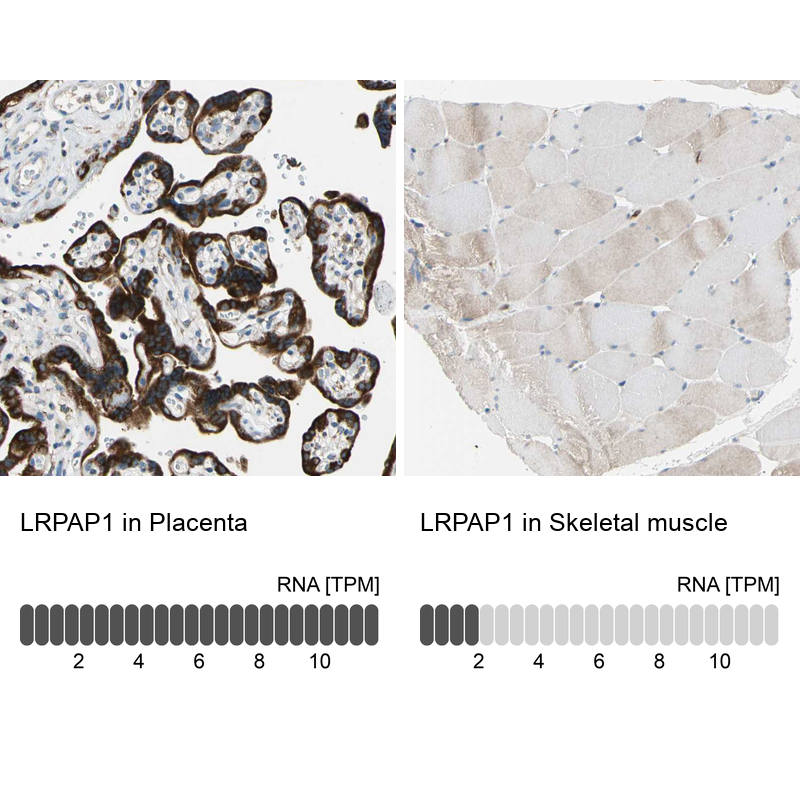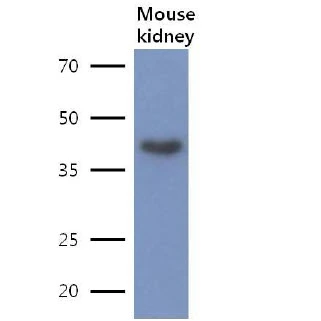
WB analysis of Mouse kidney tissue lysate using GTX57603 LRPAP1 antibody. Loading : 40 μg Dilution : 1:500
LRPAP1 antibody [AT8G8]
GTX57603
ApplicationsImmunoFluorescence, Western Blot, ImmunoCytoChemistry
Product group Antibodies
ReactivityHuman, Mouse
TargetLRPAP1
Overview
- SupplierGeneTex
- Product NameLRPAP1 antibody [AT8G8]
- Delivery Days Customer9
- Application Supplier NoteWB: Recommended starting dilution is 1:500.. *Optimal dilutions/concentrations should be determined by the researcher.Not tested in other applications.
- ApplicationsImmunoFluorescence, Western Blot, ImmunoCytoChemistry
- CertificationResearch Use Only
- ClonalityMonoclonal
- Clone IDAT8G8
- Concentration1 mg/ml
- ConjugateUnconjugated
- Gene ID4043
- Target nameLRPAP1
- Target descriptionLDL receptor related protein associated protein 1
- Target synonymsA2MRAP, A2RAP, HBP44, MRAP, MYP23, RAP, alpha-2-MRAP, alpha-2-macroglobulin receptor-associated protein, 39 kDa receptor-associated protein, low density lipoprotein receptor-related protein associated protein 1, low density lipoprotein-related protein-associated protein 1 (alpha-2-macroglobulin receptor-associated protein 1)
- HostMouse
- IsotypeIgG1
- Protein IDP30533
- Protein NameAlpha-2-macroglobulin receptor-associated protein
- Scientific DescriptionThis gene encodes a protein that interacts with the low density lipoprotein (LDL) receptor-related protein and facilitates its proper folding and localization by preventing the binding of ligands. Mutations in this gene have been identified in individuals with myopia 23. Alternative splicing results in multiple transcript variants. [provided by RefSeq, Dec 2013]
- ReactivityHuman, Mouse
- Storage Instruction-20°C or -80°C,2°C to 8°C
- UNSPSC12352203



![Various whole cell extracts (30 μg) were separated by 10% SDS-PAGE, and the membrane was blotted with RAP antibody [N1C3] (GTX104033) diluted at 1:1000.](https://www.genetex.com/upload/website/prouct_img/normal/GTX104033/GTX104033_40527_20160428_WB_w_23060120_207.webp)
